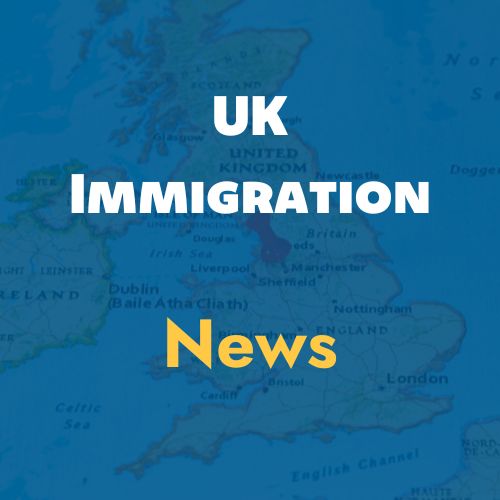Major UK Immigration Changes Confirmed From 22 July 2025


Major UK Immigration Changes Confirmed From 22 July 2025
The UK government has confirmed a sweeping package of immigration changes that will take effect from 22 July 2025, subject to Parliamentary approval. These measures mark the first phase of implementation under the Immigration White Paper, which sets out a new direction for the UK’s approach to immigration.
The message is clear: the system is moving towards higher skills, lower numbers, and tighter controls.
Here’s what employers need to know.
1. Skilled Worker Visa: 111 Occupations to Be Removed
From 22 July, the minimum skill level for Skilled Worker visa eligibility will rise to RQF Level 6 (degree level). This represents a significant tightening of the existing system.
- 111 occupations currently eligible under the Skilled Worker route will be removed.
- Roles in construction, hospitality, retail, and other traditionally lower-skilled sectors will be particularly affected.
- This change is said to be part of a broader effort to align the immigration system with the UK’s long-term industrial strategy and reduce reliance on overseas recruitment for lower-skilled jobs.
Employers in these sectors should urgently review any plans to sponsor workers under roles that fall below RQF Level 6.
2. Closure of the Overseas Social Care Route (Care Workers & Senior Care Workers)
The visa route for overseas care workers is closing to new applicants.
This is a significant shift from previous policy. The government cited “widespread abuse and exploitation” in the sector and has taken the decision to shut the door to new international recruitment.
- The route will close from 22 July.
- Transitional arrangements will be in place for those already in the UK on a relevant visa.
- Employers currently sponsoring care workers should review the details of the transitional policy and assess future workforce needs accordingly.
The move places greater pressure on the UK social care sector to grow and retain its domestic workforce, a sector already grappling with critical staffing shortages.
3. New Temporary Shortage List Replaces Immigration Salary List
The Immigration Salary List is being replaced by a Temporary Shortage List, which will:
- Cover only roles below RQF Level 6 that are considered critical to national priorities.
- Be time-limited until the end of 2026, unless the independent Migration Advisory Committee (MAC) recommends an extension.
- Require each sector to have a workforce strategy in place to train UK-based workers. Without this, the sector risks losing access to the immigration system altogether.
Key Restrictions for Temporary Shortage List Occupations:
- No dependant visas allowed.
- No reduced salary thresholds.
- No visa fee discounts.
This is a departure from previous approaches, where shortage list roles enjoyed several concessions. The government states that its aim is to ensure international recruitment is used only in exceptional, strategic cases, rather than as a long-term solution for workforce shortages.
What Hasn’t Been Confirmed Yet?
While the July changes are significant, more reforms are expected before the end of 2025 as announced in the White Paper, including:
- Increased salary thresholds across visa categories.
- Uplifted English language requirements.
- Changes to the 10-year Indefinite Leave to Remain (ILR) route.
- Revised family migration policies.
- Increased Immigration Skills Charge.
These measures form part of a wider programme of immigration and border system reforms, with further announcements expected on asylum and enforcement policy.
What Employers Should Do Now
If your organisation relies on overseas recruitment, particularly for roles below degree level, in social care, or those previously supported by the Immigration Salary List, now is the time to:
- Audit all sponsored roles for compliance with new skill thresholds.
- Submit extension or new hire visa applications before the 22nd July (work start dates can be set 3 months in advance)
- Update workforce plans for Q3 and beyond.
- Reassess recruitment strategies, especially in affected sectors.
- Ensure ongoing compliance, particularly with sponsorship duties, as enforcement is also expected to increase under the new regime.
How Immtell Can Help
At Immtell, we support UK businesses to navigate these fast-moving immigration changes with clarity and confidence. Whether you're assessing the impact of the July reforms, planning your next CoS allocation, or preparing for a Home Office compliance visit, we can help.
We provide:
- Regulated immigration advice
- Skilled Worker visa support
- Sponsor licence applications and immigration audits
- Compliance training for HR teams
- Tailored support packages for ongoing immigration management
If you’re unsure how these changes affect your business, we recommend acting now to avoid disruption later. Contact us to work out a plan.
Official Source: https://www.gov.uk/government/...

